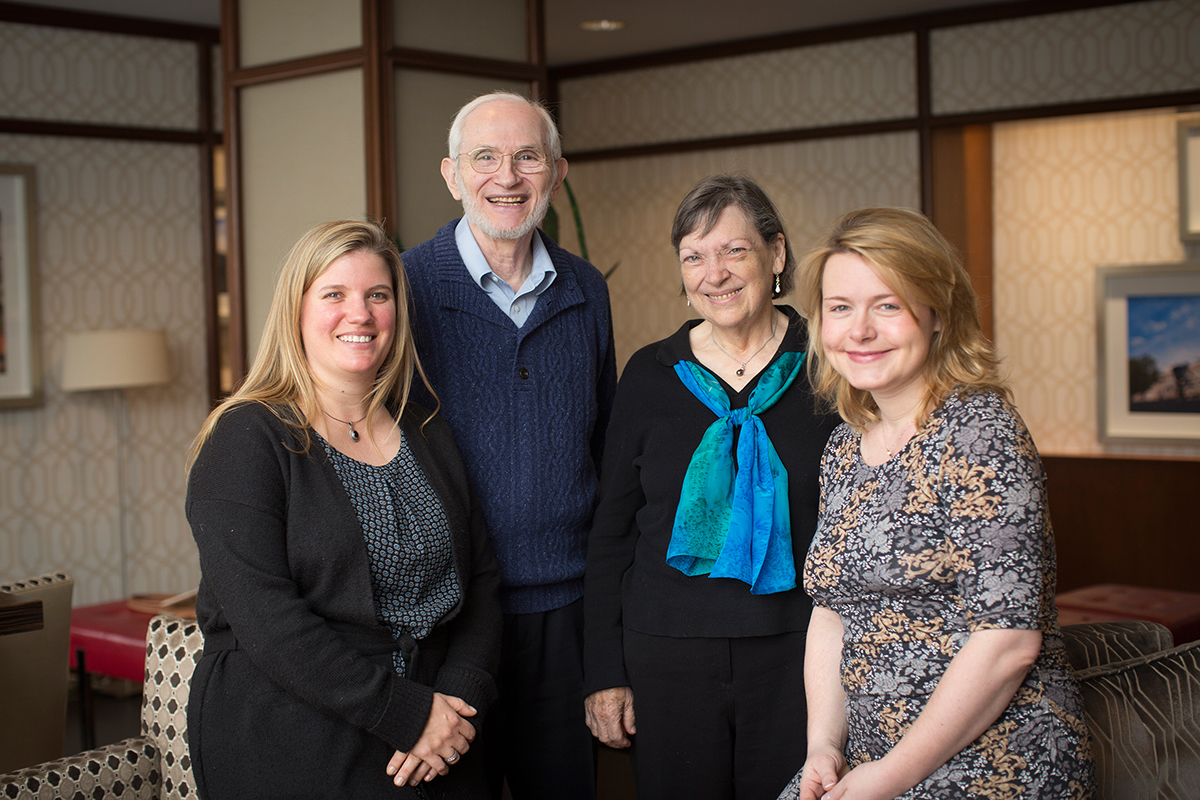Two women faculty receive inaugural Schwartz awards
By Krishna Ramanujan

Two researchers have received inaugural awards from the Schwartz Research Fund for Women in the Life Sciences, endowed by Joan Poyner Schwartz ’65 and Ronald H. Schwartz ’65. Ron and Joan Schwartz each had long careers at the National Institutes of Health and are retired.
Natasza Kurpios, assistant professor of molecular medicine in the College of Veterinary Medicine, and Susan Daniel, associate professor of chemical and biomolecular engineering in the College of Engineering, each received $12,500 as part of the new annual award that supports women life scientists engaged in innovative research.
“Throughout their careers, both Joan and Ron Schwartz have been interested in supporting women in science who are taking risks,” said Yael Levitte, associate vice provost for faculty development.
Kurpios’ lab uses chicken and mouse embryos as a model to study the mechanisms that direct the formation of organs during embryonic development, and birth defects. Specifically, Kurpios seeks to understand how information received from cell signaling is integrated ultimately to determine distinct cellular behaviors and cell shape during development.
Kurpios received a doctorate in biochemistry and molecular genetics from McMaster University in Canada in 2005. She did postdoctoral research in the Department of Genetics at Harvard Medical School and joined the Cornell faculty in 2009.
Daniel’s research focuses on understanding phenomena at biological interfaces and chemically patterned surfaces that interact with soft matter – liquids; polymers; and biological materials, like cells, viruses, proteins and lipids. In particular, her group investigates virus-cell membrane fusion and the impact of cell membrane properties on virus entry and the emergence of new human pathogens.
Daniel received her doctorate in chemical engineering from Lehigh University. After a postdoctoral position at Texas A&M University in 2005, she joined Cornell’s faculty in 2007.
“The academic selection committee felt that the research conducted by the applicants is exciting and innovative. Reviewers noted that almost any applicant was deserving of the funds. The competition was fierce,” Levitte said of the 23 applicants.
Media Contact
Get Cornell news delivered right to your inbox.
Subscribe